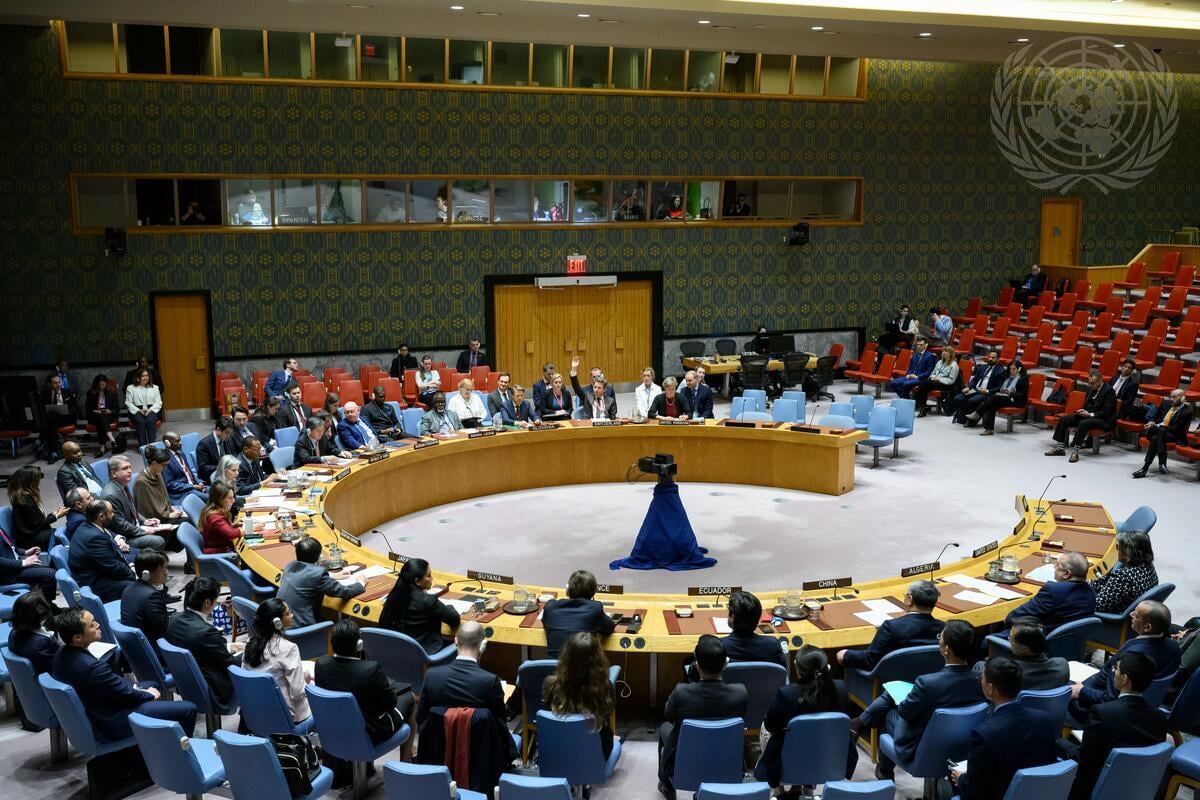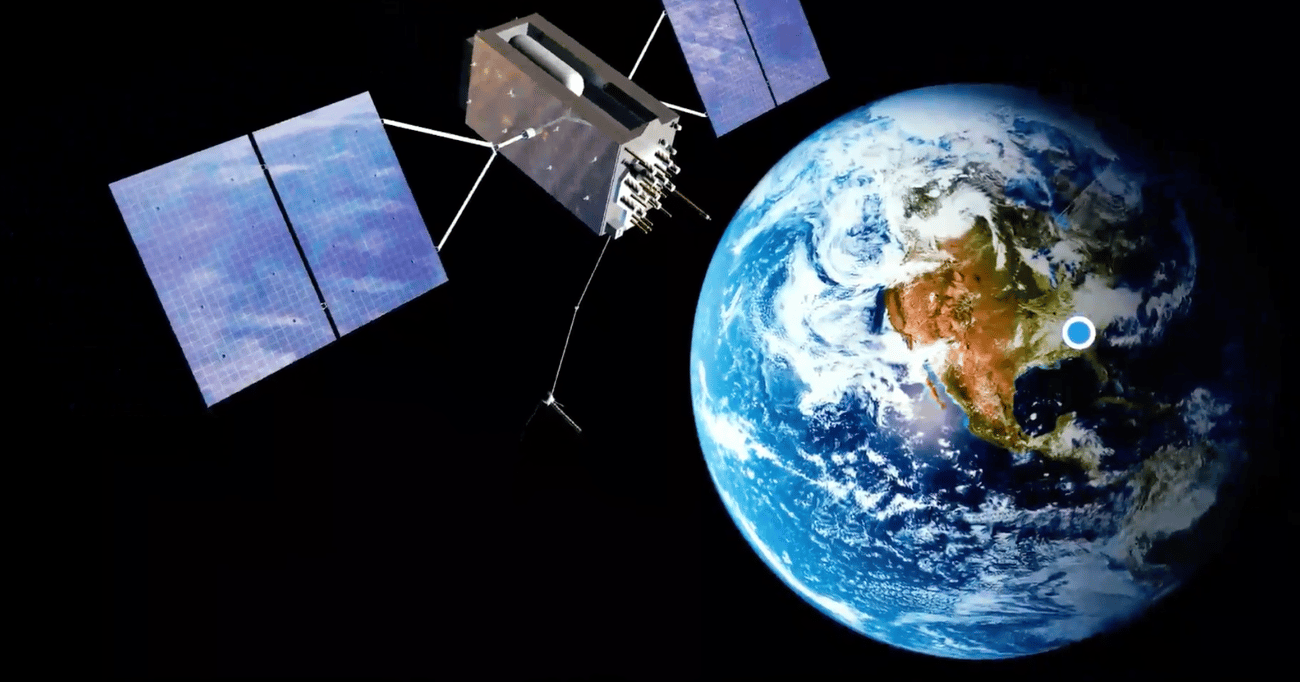National security insights forspace professionals. Delivered Tuesdays.
National security insights for space professionals. Delivered Tuesdays. |
|
|
|
Welcome to this week's edition of SpaceNews Military, your concise source for the latest developments at the intersection of space and national security. In this issue, we cover:
- New entrants keep Space Force satellite program competitive - DoD continues to face delays in GPS modernization - Averting conflict in the final frontier: Diplomats meet in Geneva
If this newsletter was forwarded to you, sign up for free here. |
|
|
|
 |
Competition remains strong in DoD satellite program
The U.S. Department of Defense's program to build a proliferated Low Earth Orbit (LEO) constellation continues to see robust competition, despite recent industry consolidation. Space Force's Space Development Agency (SDA) Director Derek Tournear expressed confidence in the market's health during a recent DefenseNews event.
Key points: SDA reports "double-digit bids" for its Proliferated Warfighter Space Architecture (PWSA) program. New entrants like Rocket Lab and Sierra Space have secured satellite contracts. Lockheed Martin's acquisition of Terran Orbital is not expected to limit competition, as Terran will remain a commercial supplier. Raytheon Technologies has shifted strategy, no longer competing as a prime contractor for fully integrated satellite systems.
Tournear emphasized the importance of maintaining a diverse supplier base, stating, "If we get down to a handful of bidders, that would start to scare me."
| | |  |
|
|
|
Averting conflict in the final frontier
Diplomats, military officials, industry leaders, and experts are gathering in Geneva this week for the annual Outer Space Security Conference hosted by the UN Institute for Disarmament Research. The focus: how to build greater cooperation to prevent an arms race in outer space.
The timing is critical, space security expert Jessica West writes in SpaceNews, as diplomatic efforts have stalled for decades while the threats have risen. More countries are developing counterspace technologies to disrupt space systems, and trust in existing arms control measures is faltering. Two parallel UN processes are underway — one focused on norms of responsible behavior, the other on legal agreements to bar weapons in space. Neither effort can succeed without the other, and there are concerns that parallel approaches could splinter the international community. The 2024 Outer Space Security Conference will seek to tackle thorny issues like defining the threshold of "use of force" in space. |
|
|
|
| A new U.S. Government Accountability Office report highlights mixed progress in the modernization of the Global Positioning System (GPS), citing advancements in satellite and ground equipment upgrades alongside persistent delays in some areas.
The report, released on Monday, reveals that the Space Force is grappling with technical hurdles in next-generation GPS satellites and ground systems. These challenges have eroded schedule margins, potentially pushing back the delivery of 24 M-code-capable satellites crucial for military operations through the 2030s. M-code, a more secure and jam-resistant signal, is central to the modernization efforts. The ground control segment known as OCX, while achieving some key testing milestones, still requires further evaluation before military acceptance. The projected acceptance date is now set for December 2025. The report also flags risks in the development of user equipment, including microchips and cards that process M-code signals. | | |  | In the latest episode of the SpaceNews Leading Women in Space series,
correspondent Debra Werner speaks with Col. Michelle Idle, Deputy Commander, Space Systems Command, United States Space Force. | | |
|
|
|
China's experimental reusable spaceplane returned to Earth last week after completing its third orbital mission.
The "success of the experiment demonstrates the growing maturity of China's reusable spacecraft technologies, which will pave the way for more convenient and affordable round-trip methods for the peaceful use of space in the future," a state media report said.
China launched the spacecraft from Jiuquan spaceport on a Long March 2F rocket for the third time Dec. 14. |
|
|
|
 |
The U.S. Space Force is exploring ways to bolster the resilience of the Global Positioning System (GPS). One option favored by Air Force Secretary Frank Kendall is to use smaller, lower-cost satellites to augment the existing GPS infrastructure.
Known as Resilient GPS (R-GPS), these smaller satellites would provide the U.S. military additional sources of positioning, navigation and timing data. Kendall has identified R-GPS as a high priority but the future of the program is uncertain as lawmakers are questioning its effectiveness and cost.
Gen. Michael Guetlein, vice chief of space operations, said concept studies for R-GPS are ongoing but stressed that the program's future hinges on congressional approval. | | | The U.S. Air Force awarded Canopy Aerospace two contracts with a combined value of $2.8 million to develop thermal protection systems.
One contract focuses on Canopy's transpiration-cooled TBS. Under a second contract, Canopy will embed high-temperature sensors in the TPS material.
Denver-based Canopy was founded in 2021 to develop manufacturing processes that rely on software, automation and 3D-printing to supply heat shields for spacecraft and hypersonic vehicles. | | |
|
|
|
|

No comments:
Post a Comment